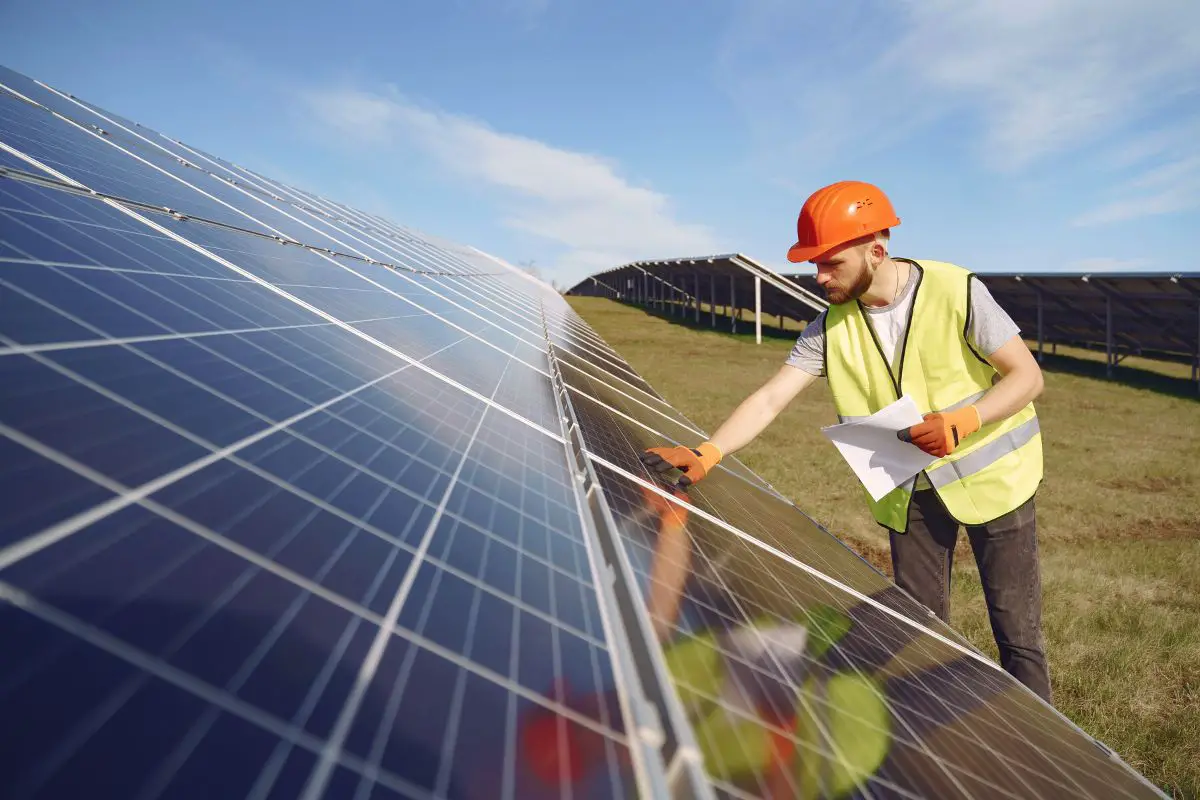Are Solar Panels Dangerous [5 Most Common Myths Busted!]
So you decided to take the plunge and hook up a set of solar panels.
But then the worries slowly creep in. Are solar panels safe? Do they pose any dangers of electrocution?
Many things could go wrong, and you’ve heard it.
Have you ever heard of Mythbusters? That’s our work today – only we hunt down and bust myths like this one concerning solar panels.
Solar can be the primary power source for your home, farm, or business, but first, let’s break down the myths and clarify a few safety issues to settle your nerves.
Ready?
Myth or Fact #1: Are Solar Panels Dangerous to Install?
Solar energy is among the safest forms of renewable energy. If installed well, it will back you up and stop that cash drain on your energy bills.
As you set up solar panels on your roof or a solar farm on your land, always ensure qualified and reputable technicians install them.
Solar panels are like any other electrical equipment. If something can go wrong, it will go wrong sooner or later.
Everyone has heard of that one person whose house almost caught fire after a few of his solar panels burst into flames in the middle of the day.
And I’m not saying you’re wrong to worry about it. (Quite the contrary!) But according to industry reports, this occurrence is rare, around 1 in every 10,000.
‘The risk of solar panels catching fire is negligible. However, there is no official percentage around this, but it is around 0.006%,’ according to a German roofing company.
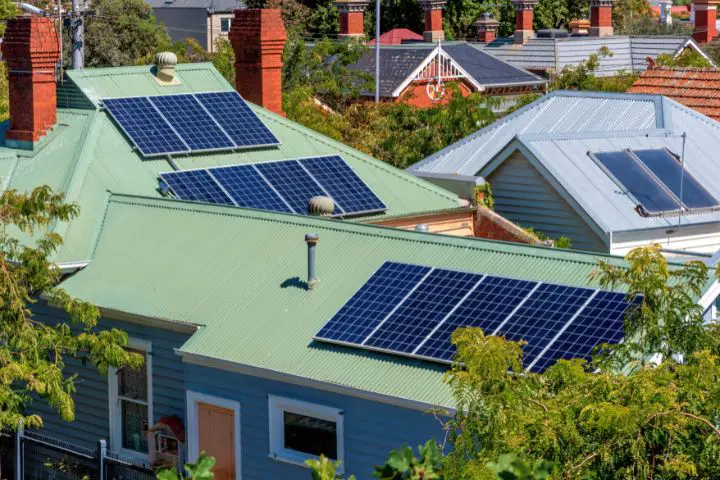
But are solar panels on roofs dangerous to firefighters?
Don’t worry though.
The fire department is well-equipped to deal with fires from photovoltaic systems. The local firefighters got there right on time to stop the fire from causing severe damage to the property.
Such fires usually result from:
- Faulty installation
- Flaws in the design
- Component defects
The Safe Way to Install Solar Panels
The safety precautions for solar panel systems begin at installation, starting with your safety on the roof and correctly installing all the solar panel components.
Don’t be surprised that more people fall off the roof than get electrocuted when dealing with solar panels, so beware of the effects of gravity to avoid breaking a limb while at it.
To avoid falling or tripping off the roof:
- Avoid backward movement on the roof, as you might slip or trip on unseen objects.
- Keep your tools and equipment like screwdrivers and pliers in pockets or tool holsters to avoid tripping over them on the roof.
- Do not install solar panels during adverse weather conditions such as strong winds and rains, as the roof gets slippery when wet, and the wind can make you lose balance.
- Use prospective personal equipment (PPE) such as a harness or rope with an anchor to hold you if you shift or lose your balance.
- Wear the right shoes with rubber soles that grip the roof surface and keep you stable.
We know DIY solar installation isn’t for everyone, so if you lack technical installation skills, please ask your solar system provider to provide an installation crew.
Most reputable solar system providers offer a free installation service, so always claim it to avoid unnecessary failures, falls, and complications in your solar system.
Lastly, a friendly reminder to always mind the ladder. Keep it steady and climb carefully to avoid the 911 call.
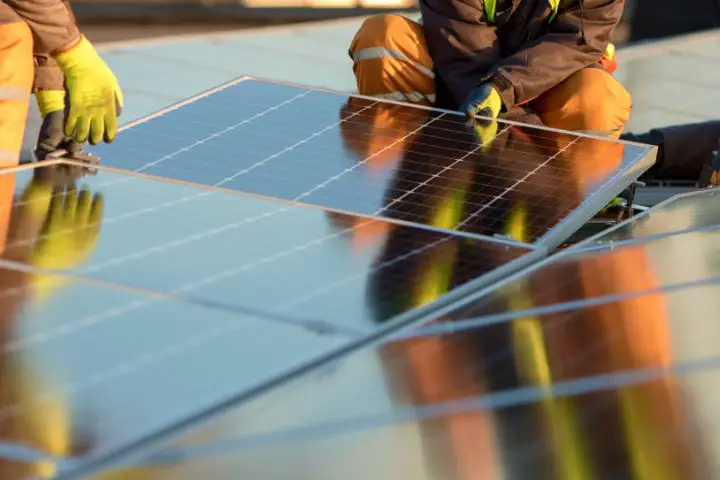
Myth or Fact #2: Are Solar Panels Dangerous to Touch?
Of course not. Solar panels are made from an aluminum frame and tempered glass that is safe to touch. But ONLY if kept in tip-top condition.
Nobody loves touching dirty and hazardous stuff.
Like any good electrical system, your solar system needs regular maintenance to ensure it serves you effectively.
Imagine what would happen if you let wires fall out of place. Someone could trip over them or, worse, get electrocuted.
That’s why experts recommend routine preventive maintenance (PM) on your solar panels, which includes:
- Repairs
- Adjustments
- Part replacements
- Cleaning
This increases the operational output from your solar panels, meaning they will serve you longer as if they were still brand new.
Regarding cleaning as a part of PM, the solar panel tilt, winds, and constant rain save you a lot of work.
However…
Heavy reliance on these factors can reduce their performance by around 5% as the rains and wind only clean out a fraction of the dirt.
In the absence of rain, cleaning your solar panels is an easy DIY routine, or you can get someone to do it for you.
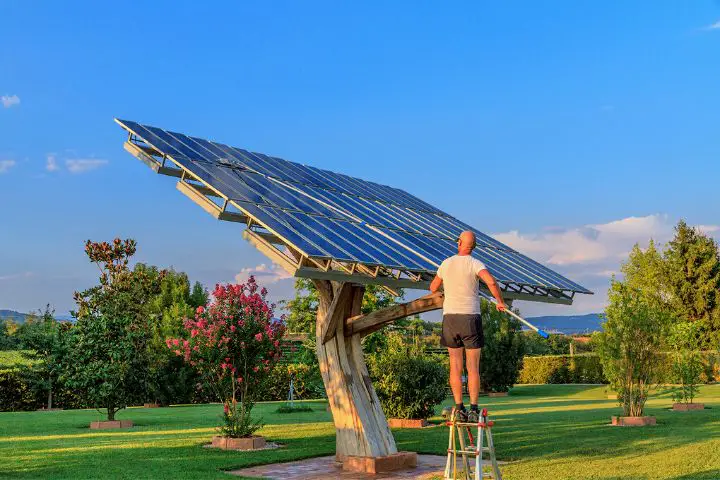
Myth or Fact #3: Are Solar Panels Safe for Your Health?
Around every new idea is the occasional health concern. The same goes for solar panels.
So, are solar panels safe for your health?
Some argue that solar panels’ power cells release radiation that could cause cancer if you opt for solar power.
That’s just a load of hogwash.
Noah Kittner, professor of environmental sciences at the University of North Carolina, leaves no room for interpretation. “There is no evidence that solar panels are causing cancer,” he says.
In other words, the claim that you can get cancer from solar panel power cells radiation can only carry some weight on Youtube.
You can breathe out now.
Some conspiracy theorists have also come up with the ingenious argument that the electromagnetic field produced by solar panels harms your health.
According to the WHO, it’s true that while producing electricity, solar panels emit negligible electromagnetic waves.
However…
You have nothing to worry about, as a report showed, they are just as harmful as the static electricity on your hair.
That’s right; they’re harmless.
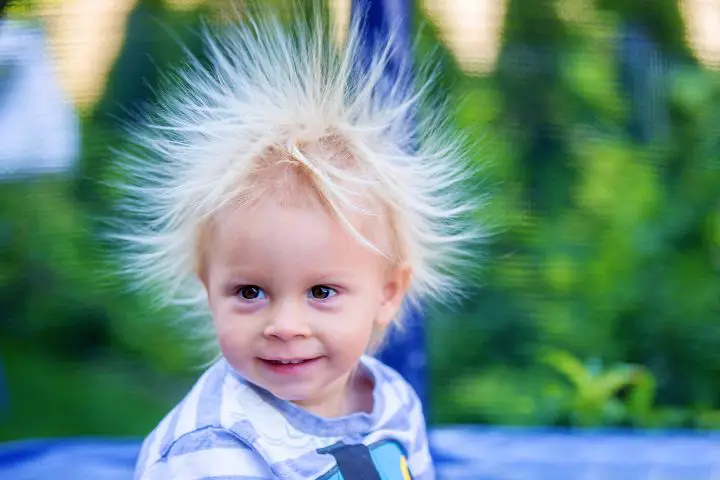
Beware of Electrocution
An uncharged solar cell is as harmless as a toothless viper but starts packing power once it converts sun rays to energy.
You have nothing to fear if your solar panels are part of a photovoltaic array since it is grounded to keep you safe from electrocution.
But…
That can all change if one of your panels is not working correctly and is still collecting power.
Most people who get electrocuted usually get struck when cleaning malfunctioning solar panels that are still operational.
Electric shocks from solar panel systems are sporadic but occur due to:
- Broken parts
- Exposed cables
- Malfunctioning parts
Other than that, always wear safety gloves when dealing with electrical equipment since they are insulated against electric shock.
Myth or Fact #4: Are Your Pets Safe Around Solar Panels?
Generally, your pets like cats, dogs, and birds, can live and thrive under a roof lined with solar panels.
For anyone who thinks about setting up a solar farm, it is the solar panels’ safety you should worry about for several reasons.
First, cats and dogs can scratch the tempered glass panels, chew and ruin the wires, or leak over them.
That would be disastrous not only to your investment but also to the animals themselves.

Also…
Birds are often attracted to the warmth of a solar roof, so they make themselves at home by nesting under solar panels.
The only thing you must be wary of from the birds is corrosion.
Out of experience, birds are not the cleanest guests, which could harm your solar equipment.
Bird droppings, somehow, always find their way onto your solar panels.
This not only stains them, making them less efficient in picking up solar rays but later leads to corrosion on the aluminum parts.
Bottom line, if you want to protect both the panels themselves as well as any furry or feathery guests that might find them alluring, you can install critter guards.
Myth or Fact #5: Are Solar Panels Safe for Ecological Systems?
Solar panels are a major tool in the fight for a green planet. As a source of renewable energy, solar is an important agent in mitigating the effects of climate change.
However…
The components of your solar power system, like the power cells, are NOT made from biodegradable material that dissolves into the earth after disposal.
Chemicals from these parts can contaminate water sources and put marine life in danger if not handled properly and disposed of with utmost care.
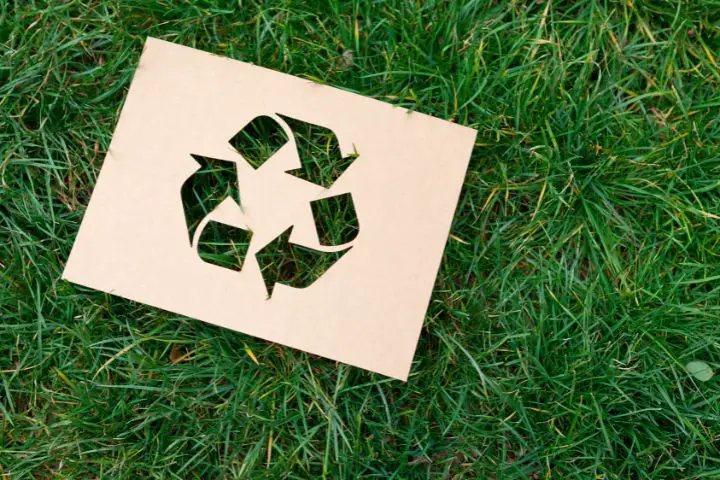
That doesn’t only apply to marine life, but us too, who drink water from unverified sources.
For the best solar panel disposal solutions, check out our detailed guide on how to get rid of your junk and still protect the planet.
Apart from that…
Researchers and marine biologists in India argue that constructing solar panels on top of water bodies can reduce the amount of sunlight going underwater and interfere with the ecosystem.
“For an ecosystem to function, its structure should be left intact. The spatial extent of the solar panels can alter the amount of sunlight entering the system. This can interfere with the various food chain and the biogeochemical cycles of the aquatic ecosystem,” says T.V. Ramachandra from the India Institute of Science.
Covering the water surface with solar panels makes it hard for aquatic plants to manufacture their food and other living organisms to survive.
Are Solar Panels Dangerous? – FAQs
Is It Safe to Personally Install My Solar Panels?
With the right technical know-how, installing your solar panels by yourself is not a difficult task, though it is highly recommended that you seek help from qualified technicians.
This reduces the risk of missing essential components and procedures affecting your solar panel’s efficiency.
Is Radiation From Solar Panels Harmful?
No, the radiation produced by solar power cells is negligible; hence it is not associated with any health complications.
You can rest assured that your solar energy is perfectly safe for you and your family.
How Long Do Solar Panels Last?

Solar panel manufacturers made it so that a sound solar panel system can serve you for over 20 years after installation.
The longevity of your solar panels makes it a cost-effective power option for your home or business.
Can Solar Panels Work at Night?
Yes, your solar power system is functional both day and night. The only difference is that solar panels cannot harness energy at night since solar rays from the sun activate them.
At night you rely on the power saved up in your power cells, which is enough to get you through the night.

